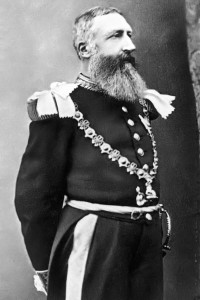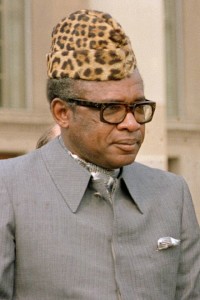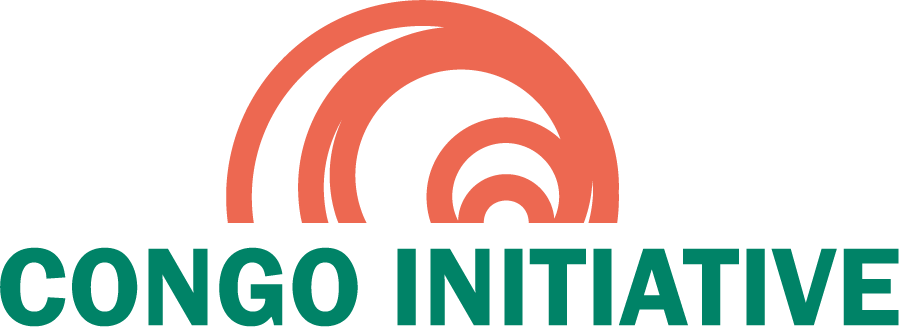“Perhaps the most nagging, persistent problem I have witnessed…has been the lack of visionary, civic-minded leadership.”
– Jason Stearns, author of Dancing in the Glory of the Monster: The Collapse of the Congo and the Great War of Africa
For most of the past 130 years, the people of the Democratic Republic of Congo (DRC) have often experienced corrupt, greedy, and oppressive leadership among those in the top echelons of power.
 Under the auspices of a philanthropic venture, King Leopold of Belgium secured control over much of modern-day DRC in 1885, following some shrewd political manipulation of European and American government officials. During the next 23 years, Leopold’s rule was marked by the exploitation of the Congolese people, land and resources, as Leopold and several concessionary companies amassed a fortune by extracting ivory and rubber from the Congo, selling these commodities to European markets in what Joseph Conrad called “the vilest scramble for loot that ever disfigured the history of human conscience.”
Under the auspices of a philanthropic venture, King Leopold of Belgium secured control over much of modern-day DRC in 1885, following some shrewd political manipulation of European and American government officials. During the next 23 years, Leopold’s rule was marked by the exploitation of the Congolese people, land and resources, as Leopold and several concessionary companies amassed a fortune by extracting ivory and rubber from the Congo, selling these commodities to European markets in what Joseph Conrad called “the vilest scramble for loot that ever disfigured the history of human conscience.”
In 1908, Leopold was forced to forfeit the Independent Congo State to the Belgian government after the atrocities that occurred during his reign were exposed by an international campaign led by E.D. Morel’s Congo Reform Association. Although, Belgium’s rule was not nearly as cruel as Leopold’s tenure, the Belgian colonial administration continued to extract resources from the mineral-rich Congo, while providing little more than rudimentary educational opportunities. At this time, the Congolese still lacked real political power or land rights, and the Congolese were barred from obtaining higher education or senior positions in the military or government, curtailing the possibility of a Congolese elite from emerging to challenge Belgian rule. What’s more, at the time of DRC’s independence in 1960, there were only 30 Congolese who had obtained a university education, leaving the burgeoning Congolese government deprived of the necessary capacity to run a complex institution in a country the size of the United States east of the Mississippi.
Patrice, DRC’s first prime minister, was assassinated in 1961, allowing Joseph Mobutu to finally ratchet down his grip on power after his original coup d’etat” in 1960. Deftly negotiating Cold War politics, Mobutu was backed by western governments as a stalwart against communism, who supplied the Mobutu regime with billions of dollars over the course of his thirty-two years of autocracy.
Mobutu’s reign between 1965 and 1997 was marked by the centralization of political and economic power under his authority. Mobutu converted mining companies in the Kivus and Katanga into parastatals through which Mobutu bankrolled patron-client networks often appointing people from his small Ngbandi ethnic group to key positions of power and amassing personal wealth (estimated at around $5 billion in the 1980s rather than developing the country’s infrastructure and institutions. Fearing the loss of control over the government and military, Mobutu intentionally kept these institutions weak, often pitting various power brokers against each other. As a result, according to Jason Stearns, Mobutu had corroded his own state in order to prevent any challengers to his power from emerging, eroding that very power in the process” (Jason Stearns, Dancing in the Glory of Monsters, 126). Prior to the first Congo War between 1996 and 1997 that led to Mobutu’s overthrow, the DRC’s economy was in free-fall with soaring inflation (reaching 9,800% in 1994) and huge currency devaluations, a national debt of $12.5 billion, and a formal economy that diminished by about 40% between the late 1980s and the mid-1990s.
 Mobutu’s government collapsed in May 1997 during the invasion led by Rwandan and Ugandan forces under the Alliance of Democratic Forces for the Liberation of Congo-Zaire (AFDL) who maneuvered Laurent Kabila into power in the DRC. Yet, Laurent Kabila operated in similar fashion to his predecessor, imprisoning civil society leaders and journalists. And Laurent Kabila soon fell out with the Rwandan and Ugandan governments that had orchestrated his Presidency after expelling all of their troops from the DRC in June 1998 – an event, which set the footing for a new war. This second war from August 1998 to July 2003 escalated into a regional war involving nine countries that bankrupted the country and left approximately 3.8 million people dead.
Mobutu’s government collapsed in May 1997 during the invasion led by Rwandan and Ugandan forces under the Alliance of Democratic Forces for the Liberation of Congo-Zaire (AFDL) who maneuvered Laurent Kabila into power in the DRC. Yet, Laurent Kabila operated in similar fashion to his predecessor, imprisoning civil society leaders and journalists. And Laurent Kabila soon fell out with the Rwandan and Ugandan governments that had orchestrated his Presidency after expelling all of their troops from the DRC in June 1998 – an event, which set the footing for a new war. This second war from August 1998 to July 2003 escalated into a regional war involving nine countries that bankrupted the country and left approximately 3.8 million people dead.
Laurent Kabila was assassinated in January 2001, paving the way for his son, Joseph Kabila, to take power in October 2002 and was officially elected President in 2006, and again in 2011. With on-going conflicts in the eastern part of the DRC since the peace treaty was signed in 2003, the D.R. Congo remains in a state of fragility weaken by decades of poor governance, resulting “in a state that is everywhere and oppressive but that is defunct and dysfunctional,” according to Jason Stearns.
Accordingly, as the people of DRC seek to rise above decades of oppression and conflicts, a palpable void of mature leaders remains in the DRC. Kenyan Nobel Laureate and former Minister of Parliament, Wangari Maathai writes of a crisis of leadership across Africa, but her words are strikingly relevant for DRC in particular:
“What has held Africa back, and continues to do so, has its origins in a lack of principled, ethical leadership. Leadership is an expression of a set of values; its presence, or the lack of it, determines the direction of a society, and affects not only the actions but the motivations and visions of the individuals and communities that make up that society.
Africa needs a revolution in leadership…[a] revolution that demands that its leaders not merely support honesty and transparency…but embody it in their behavior as well…They must foster values such as fairness, justice, and working for the common good rather than turning a blind eye to violence and exploitation, or promoting narrow self-interest and opportunism. Perhaps the most important quality that African leadership needs to embrace, and which is desperately lacking across the continent, is a sense of service to their people…Africans must change the mind-set that affects many colonized peoples everywhere. They must believe in themselves again.” (Dr. Wangari Maathai, The Challenge for Africa, 18-10, 25)
In response to the “lack of principled, ethical leadership” articulated by Dr. Maathai, Congo Initiative, through its Community Centers and the Université Chrétienne Bilingue du Congo (UCBC), is raising up a new generation of leaders for DRC–men and women– who are rooted in a Christian moral vision, and are committed to justice and service to society. This is achieved through higher education that integrates theory with praxis, training for pastors and other community leaders, mentoring and reconciliation work.
CI is addressing this continuing leadership crisis by mobilizing resources locally and abroad for training and developing leaders with moral courage and a bold vision for the creation of ethical and responsible communities of hope, justice and security that serve God and one another.
For more information on the history of Congo, refer to the recommended reading list on Links and Literature.
